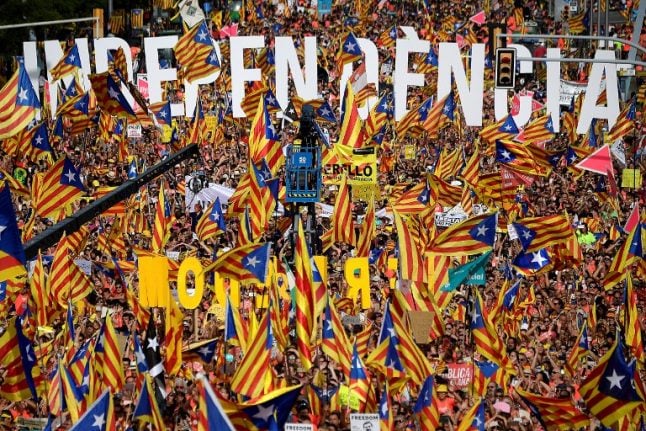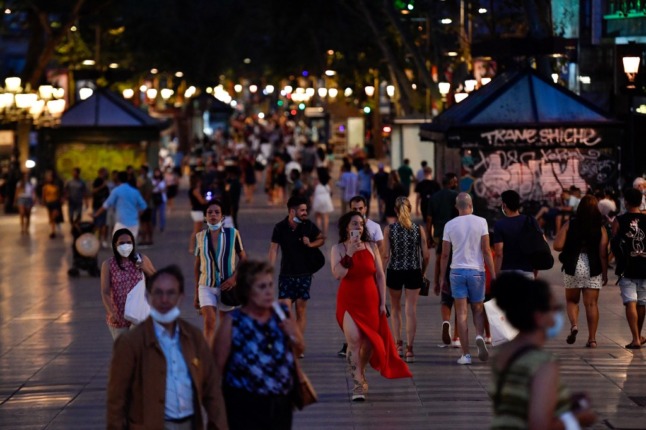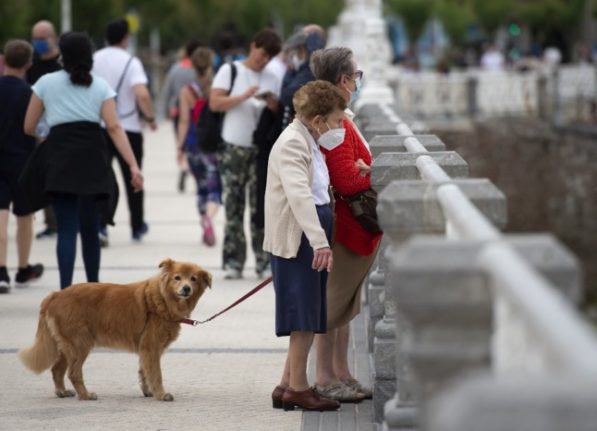Today marks the end of the third week of the trial of twelve Catalan separatists at the Supreme Court in Madrid. I have followed and chronicled every session but I shall not try to work out here if they are guilty or not of rebellion, sedition, criminal organisation or the misuse of public funds, or whether they should face 72 or 25 or 12 or no years in prison. That is for the court to decide: there are still 500 witnesses to listen to, plus the documentary evidence, plus the expert witnesses, and then the judges will take their time to consider it all and write a judgement. It is unlikely we will know the answer before the summer break.
There is however, an enormous political lesson to be learned from the defendants during their testimony, and from comments by others such as Mr. Puigdemont in the media. It is a lesson more than anything else for the voters and supporters of Catalan separatism, in Catalonia and around the world, who are vociferous in their criticism at times like this on Twitter and elsewhere. The lesson is this: you were conned. The political leaders you followed or continue to follow lied, dissembled, hid the truth and led you to believe something was possible or plausible or even legal when it never was.
If we are to believe the Mayor of Barcelona, Ada Colau, who has testified this morning in court, on September 20th and October 1st and October 3rd, 2017, two million people in Catalonia just organised themselves, all leaders of all in an exemplary civic manner. If we are to believe Esquerra MP Gabriel Rufián, it was all just an excuse to hop on the high-speed AVE train to Barcelona and go out for lunch. If we are to believe Mr. Rufián's colleague, Joan Tardà, the courts are taking revenge on a civic, peaceful, democratic people who just wanted to vote for their new country. There was never any “intention” to break data protection law, said Artur Mas, and no operational plan to take control of critical infrastructure or the Catalan Police.
READ MORE Catalan separarists' trial: What you need to know
Carles Puigdemont, a fugitive from Spanish justice who characterises himself as being in “self-imposed exile”—so not real exile—told the BBC a few days ago that “obviously we didn't execute the mandatory of the Catalan Parliament but that declaration is there”.
He added that he “regrets” suspending the declaration of independence on October 10th that year, “clearly that was a mistake”. The investigating judge, Pablo Llarena, noted that moment and the suspension in the ruling sending the twelve to trial, along with two others: a written declaration on the same day and another one on October 27th.
It was all apparently a big fat nothing.
“It's a paradox”, Mr. Puigdemont said: “that I'm a free man living here in the European Union and my colleagues are facing trial”.
No, it is not. A paradox implies some logical inconsistency that is difficult to explain, whereas the causal chain of events leading to the former regional leader being in Waterloo is very simple: after the declaration of independence, he went out for some wine and applause in Girona, then got in a car and fled to Belgium, since when he has not returned to Spain.
His colleagues did not flee and they were jailed on remand to await trial for rebellion. The Supreme Court knows this, which is why he is legally a fugitive and that is why he has not returned. On Saturday, when the Ciudadanos leader in Catalonia, Inés Arrimadas, inexplicably visited Waterloo and stood outside “the house of the Republic”, he did not even have the courage to come out and welcome her, although he did leave the door ajar.
None of the twelve accused seem to know how the logistics of the October 1st vote were organised or where the ballot boxes or ballot papers might have come from, but all of them seem to be very clear that no public money was spent on (not) organising that referendum, and most have argued there was some contradiction, and therefore wriggle room, between the rule of law and what they believe or believed was their “political mandate”, that somehow, in some misguided interpretation of the historical evidence and common sense, the will of what they think “the people” is, was above the will of the courts in a democracy.
That is totalitarian rhetoric. Several have also argued that the declaration of independence was not real, mere “political intentions”.
In countries like the United Kingdom or Germany, it is beyond comprehension that politicians would break or twist or hammer the law in like that to achieve such political aims. If Mr. Cameron had rejected the request for a Scottish referendum, no one I have spoken to believes Alex Salmond would have kept going anyway, with blatant, repeated and very public disregard for court orders.
The former senior legal expert at the Catalan Parliament, Antonio Bayona, who is on the witness list to testify, has given an interview to La Vanguardia this week. “A collective imagination has been generated in Catalonia”, he told the paper: “as if we were in an authoritarian state, creating a bit of a parallel fantasy world”. One of the accused, Omnium Cultural chairman Jordi Cuixart, also used that expression on the stand on Tuesday. “The deal on self-government of Catalonia”, he testified: “the government of Catalonia, is genetically part of this collective imagination that we have as a country”.
If, after the October 27th, 2017 declaration of independence, the Catalan Spring idea had taken hold, if thousands or tens of thousands or hundreds of thousands of separatist supporters had physically surrounded Mr. Puigdemont in the regional government headquarters building, if they had begun to make their stand and refused to budge, maybe they would have had a chance at turning their shared dream into reality.
But it never did. In the real world, he ran away. In the real world, his former colleagues are now doing everything they can at the Supreme Court to pretend it was not the thing that everybody witnessed at the time. In the real world, Catalonia is still a region of Spain and every citizen in it still Spanish.
Matthew Bennett is the creator of The Spain Report. You can read more of his writing on Patreon, and follow him on Twitter. Don't miss his podcast series with weekly in-depth analysis on Spain.

ANALYSIS: Gloves come off as Spain begins two-month-long political fist fight




 Please whitelist us to continue reading.
Please whitelist us to continue reading.
One of the better articles I have read on The Local – Spain. It exposes the iresponsible behaviour of Puigdemont, who conveniently fled the country and left others to suffer all the consequences of their collective actions. I hope all of those who are now being judged by the courts, get the maximum penalty.